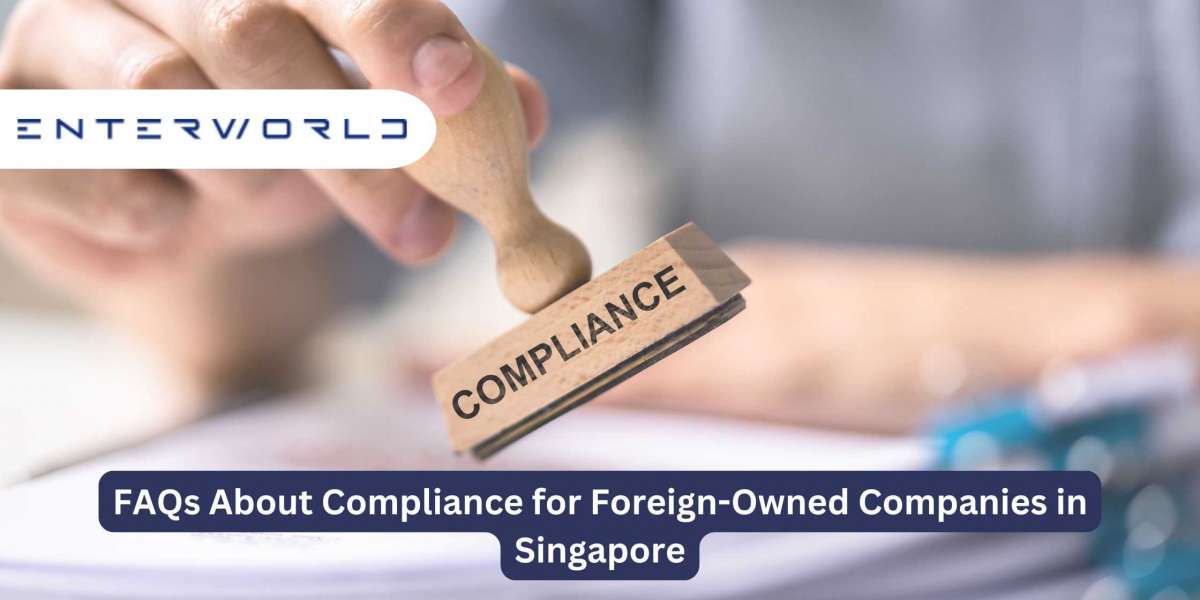Singapore is a global business hub that attracts foreign investors with its strategic location, pro-business environment, and efficient legal framework. However, understanding the compliance requirements is crucial for ensuring a smooth operation of your foreign-owned company in Singapore. This blog addresses common questions foreign business owners have regarding compliance in Singapore.
1. Do foreign companies need to register with the Accounting and Corporate Regulatory Authority (ACRA)?
Yes. Foreign-owned companies must register with the ACRA to operate legally in Singapore. The registration process involves choosing a company name, preparing the necessary documentation, and appointing local directors. Foreign entrepreneurs must also provide a local business address and adhere to corporate governance regulations.
2. What are the director requirements for a foreign-owned company in Singapore?
A Singapore-based company must appoint at least one director who is a Singapore resident. This can be a Singaporean citizen, permanent resident, or someone holding an Employment Pass. Foreign entrepreneurs can act as directors, but they will need to ensure one local director is also appointed to meet the requirement.
3. What are the annual filing and reporting requirements?
Foreign-owned companies in Singapore must file annual financial statements with ACRA. This includes submitting a Financial Statement (FS) or audited accounts if applicable, as well as an Annual Return. Companies are also required to conduct Annual General Meetings (AGMs), although small private companies are exempt from this.
Additionally, companies must file their tax returns with the Inland Revenue Authority of Singapore (IRAS) and ensure compliance with tax regulations. Failure to comply with these requirements can result in fines or penalties.
4. What taxes do foreign-owned companies need to pay in Singapore?
Foreign-owned companies are subject to corporate tax in Singapore. The current corporate tax rate is 17%, but the government offers various tax incentives for qualifying businesses, including tax exemptions for startups. Additionally, GST (Goods and Services Tax) is levied on the sale of goods and services, though companies with an annual turnover under SGD 1 million are exempt from registration.
5. Is there a minimum paid-up capital requirement for foreign-owned companies?
Yes, the minimum paid-up capital requirement for Company Incorporation in Singapore is SGD 1. While this is the legal minimum, many companies choose to raise higher capital to support operations and improve credibility.
6. What are the key compliance obligations regarding employees?
Foreign companies must comply with local labor laws, including fair employment practices and providing statutory benefits to employees. This includes contributions to the Central Provident Fund (CPF) for Singaporean employees, medical leave entitlements, and ensuring workplace safety.
For foreign employees, companies must ensure that valid work passes (e.g., Employment Pass or S Pass) are in place, and any changes to employee status must be reported to the Ministry of Manpower (MOM).
7. Are foreign-owned companies subject to audits?
The need for an audit depends on the size and nature of the company. Private companies with revenue less than SGD 10 million may be exempt from audit requirements. However, companies above this threshold, or those that are subsidiaries of foreign companies, must have their financial statements audited annually.
8. What happens if a foreign company fails to comply with local regulations?
Failure to comply with Singapore’s regulations could lead to severe penalties, including fines, suspension of business operations, or even the deregistration of the company. It is critical to ensure timely filings, adhere to corporate governance practices, and fulfill tax obligations.
9. Can foreign companies apply for tax exemptions in Singapore?
Yes. Singapore offers several tax exemptions for foreign-owned companies. The most notable is the "Start-Up Tax Exemption Scheme," which provides tax exemptions on the first SGD 100,000 of chargeable income for the first three years of a company’s operation. There are also partial tax exemptions for larger companies under the "Partial Tax Exemption Scheme."
10. Do foreign-owned companies need a local company secretary?
Yes, every company in Singapore, including foreign-owned businesses, is required to appoint a company secretary within six months of incorporation. The company secretary must be a Singapore resident and is responsible for ensuring that the company complies with regulatory requirements, including filing annual returns and maintaining statutory records.
Conclusion
Compliance is essential for foreign-owned companies looking to thrive in Singapore's dynamic business landscape. By understanding the key regulations and fulfilling your obligations, you can enjoy the benefits of operating in one of the world's most business-friendly environments. Always seek professional advice from local experts, such as corporate service providers, to ensure that your business remains compliant with Singapore’s laws.








